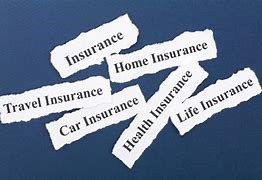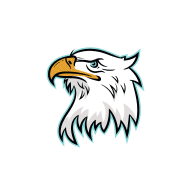Defending Your Rights, Protecting Your Freedom
Insurance

If you’re involved in a personal injury claim, it’s a safe bet that insurance coverage will play a big part. The typical car accident scenario involves an exchange of insurance information between drivers, and ensuing claims are usually resolved in some manner between you and the insurance adjuster for the at-fault driver.
An insurance defense attorney is used when an insurance company and their insured client are sued for something in their client’s contract. For example, if said client causes a car accident that results in another person suffering injury or death, the victim or his or her loved ones may go to court seeking compensation for their losses. This compensation — if awarded — is usually paid out by the insurance company. However, most insurance adjusters try to fight accusations of liability and any awarded amount. Remember, an insurer’s goal is to pay as little as possible for a personal injury claim.
That is why you should contact Beck Law to help you navigate these insurance cases.
There are many types of insurance policies. Life, health, homeowners, and auto are among the most common forms of insurance.
When you’re thinking about filing a personal injury claim, one of the first things to find out is whether the at-fault party has liability insurance that covers the underlying accident or incident. For example:
- In a car accident case, does the driver who hit you have car insurance?
- After a slip and fall, does the owner of the property have liability coverage that extends to injuries suffered by customers (commercial property) or visitors/guests (private property)?
- If it’s a dog bite case, oftentimes the dog owner’s homeowner’s insurance will apply to the incident.
AUTOMOBILE INSURANCE COVERAGE
Auto insurance understandably has very different coverage models. Most states require citizens to purchase a minimum amount of certain kinds of coverage. In Colorado, the minimum coverage is $25,000.00. The state minimum can be eaten up real quick if the accident was serious, as medical bills will likely be pretty hefty.
Liability Insurance: this insurance is the foundation of any auto policy. The at-fault driver’s insurance will pay for bodily injury and other property damage expenses caused in an accident. This includes all medical bills, lost wages, and non-economic damages.
Collision Coverage: this insurance pays for vehicle repairs. You will not be able to collect in excess of the cash value of your car, which is not the same as the replacement cost. Collision coverage is typically the most expensive component of an auto policy. By choosing a higher deductible, you can keep your premiums down but keep in mind you have to pay the deductible before the insurance company makes any payment.
Comprehensive Coverage: this insurance pays for damages not caused by an auto accident, such as damage from theft, fire, vandalism, or natural disasters. Comprehensive coverage also comes with a deductible so your insurance company will only pay after your deductible is met.
Medical Payments: this insurance pays for your medical expenses and the medical expenses of any passengers after an accident. Your Med Pay applies to you whether you are driving your car, someone else’s car, or as a pedestrian. The coverage will pay regardless of who is at fault. This is not mandatory insurance. The policy holder must ask for it. The minimum coverage is $5000.
Uninsured/Underinsured Motorist: Uninsured motorist (UM) coverage pays for your injuries if a hit-and-run driver or someone who doesn’t have auto insurance strikes you. Underinsured motorist (UIM) coverage will pay if the driver who hit you causes more damage than the liability coverage can cover.
Health Insurance: medical insurance pays the large expenses that can be incurred when you go to a doctor, hospital, or seek other costly medical services. Health insurance allows you to obtain high quality medical care without severe financial hardship. If you have assets, they can be taken away if you run up large medical costs. Medical insurance insures your assets and assures your access to good medical care. Listed below is a brief description of the major types of medical insurance.
HOMEOWNER’S INSURANCE
Homeowners’ insurance liability coverage generally deals with injuries to others, not the homeowner or their family members. It can include coverage for bodily injuries caused by accidents on your property or off-site due to your actions.
Bodily Injuries
Bodily injuries refer to physical harm suffered by someone else. For instance, if a visitor slips on a wet floor in your home and gets hurt, their medical expenses may be covered by your homeowners’ insurance liability coverage.
Medical Expenses Coverage
In some cases, homeowners insurance provides medical expenses coverage. When someone is injured on your property, their medical bills can be paid by your insurance without needing the injured person to sue you.
Examples:
- Homeowners’ insurance may cover injuries resulting from accidents like slips, trips, or falls on your property.
- If your pet bites or injures someone, your homeowner’s insurance might help cover medical expenses and potential legal costs. However, many insurance companies are excluding coverage for dog bites in recent years.
- Liability coverage may extend beyond your property, such as if you accidentally injure someone while playing sports or other activities.
Your coverage will pay all the injured person’s losses associated with the injury—which means medical bills, lost income, pain and suffering, and other damages—up to the limits of your coverage. And if a lawsuit is filed against you, the insurance company will provide a lawyer to handle the case against you.
How does the amount of insurance coverage affect my claim?
If the accident is a low-impact crash and you suffered only soft tissue damage (such as whiplash-type injuries), the liability carrier is likely to give a low offer to settle the case. Why? Because the insurance adjuster knows that if the case goes to trial and a jury sees that the car has very little damage and the claimed injuries are difficult to show objectively, then the members of the jury might be convinced that you are not really hurt that badly.
But if the plaintiff is hurt severely and the other driver’s liability coverage is at the state’s minimum limit, then the case will probably settle very quickly. Why? Because the adjuster knows that even a modest jury verdict will exhaust the insurance coverage.
On the other hand, if there is significant liability coverage, then a personal injury case may be difficult to settle. In such a situation the adjuster has considerable funds to work with and wants to pay no more than necessary. A case may need to be filed with the court before the adjuster has a sense of what the ultimate risk may be.
Who pays for medical bills after an accident in Colorado?
The person or company that caused the injury should be responsible for your medical bills. Ideally, the responsible party will have insurance that can cover most if not all of your medical bills.
If not, the injured party can file a personal injury lawsuit against the person who caused the injury or accident. In the time between the accident and a successful lawsuit, an injured person may have to look towards other sources, such as the following:
Can I use my own health insurance?
A person who is injured should be covered by his or her own health insurance for any injuries if coverage exists.
If the injured person’s insurance pays for the medical bills, the insurance company will have a right to subrogation of any funds won at trial or through an out-of-court settlement. That includes Medicare and Medicaid
What if I don’t have health insurance?
An injured person without health insurance will still get treated at a Colorado hospital, and the hospital may be willing to work on a “lien basis.”
This basically means that the hospital takes an interest in the potential personal injury case award up to the amount it is owed for treatment of the injured person. Colorado medical liens must fit code section requirements to be valid.
Medical liens have certain requirements that must be met to be valid4, but an experienced attorney can help make sure you are covered.
What other important information should I keep track of?
- the names and contact info of all parties and witnesses to the accident;
- the police accident report and your insurer’s report;
- photos and/or videos of the accident scene or defective product;
- photos of your injuries (if visible); and
- anything else that may help your case, like witness statements or declarations of friends, family, or co-workers setting forth what you are no longer able to do since you were injured.
The information you keep and give to your attorney saves you both time and money. Further, it provides the best evidence of your claim, making the chance of success much better.
What if had a pre-existing injury?
Any injuries or medical issues that were present before the accident are not eligible for compensation. The other party is responsible only for those medical bills directly caused by his or her negligence.
However, if a pre-existing injury is made worse because of an accident, the difference in cost for treatment from before to now is compensable.
